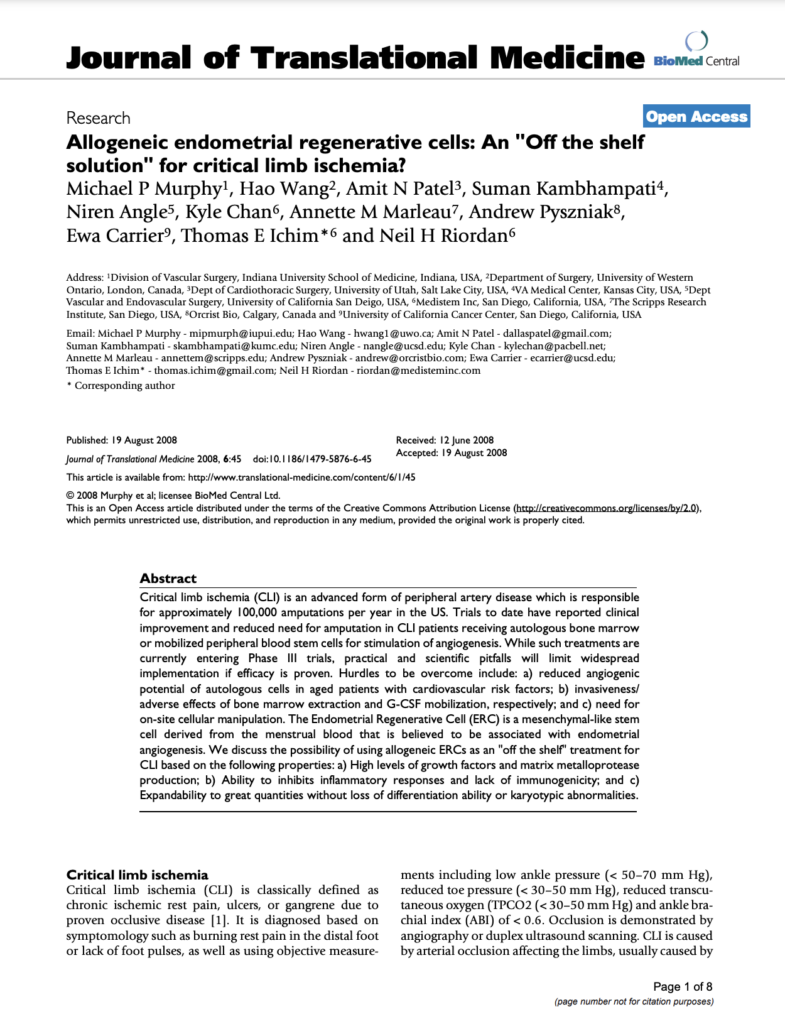August 2008
Allogeneic endometrial regenerative cells: an “Off the shelf solution” for critical limb ischemia?
Journal Citation
J Transl Med. 2008 Aug 19;6:45
Authors
Murphy MP, Wang H, Patel AN, Kambhampati S, Angle N, Chan K, Marleau AM, Pyszniak A, Carrier E, Ichim TE, Riordan NH.
Abstract
Critical limb ischemia (CLI) is an advanced form of peripheral artery disease which is responsible for approximately 100,000 amputations per year in the US. Trials to date have reported clinical improvement and reduced need for amputation in CLI patients receiving autologous bone marrow or mobilized peripheral blood stem cells for stimulation of angiogenesis. While such treatments are currently entering Phase III trials, practical and scientific pitfalls will limit widespread implementation if efficacy is proven. Hurdles to be overcome include: a) reduced angiogenic potential of autologous cells in aged patients with cardiovascular risk factors; b) invasiveness/adverse effects of bone marrow extraction and G-CSF mobilization, respectively; and c) need for on-site cellular manipulation. The Endometrial Regenerative Cell (ERC) is a mesenchymal-like stem cell derived from the menstrual blood that is believed to be associated with endometrial angiogenesis. We discuss the possibility of using allogeneic ERCs as an “off the shelf” treatment for CLI based on the following properties: a) High levels of growth factors and matrix metalloprotease production; b) Ability to inhibits inflammatory responses and lack of immunogenicity; and c) Expandability to great quantities without loss of differentiation ability or karyotypic abnormalities.

